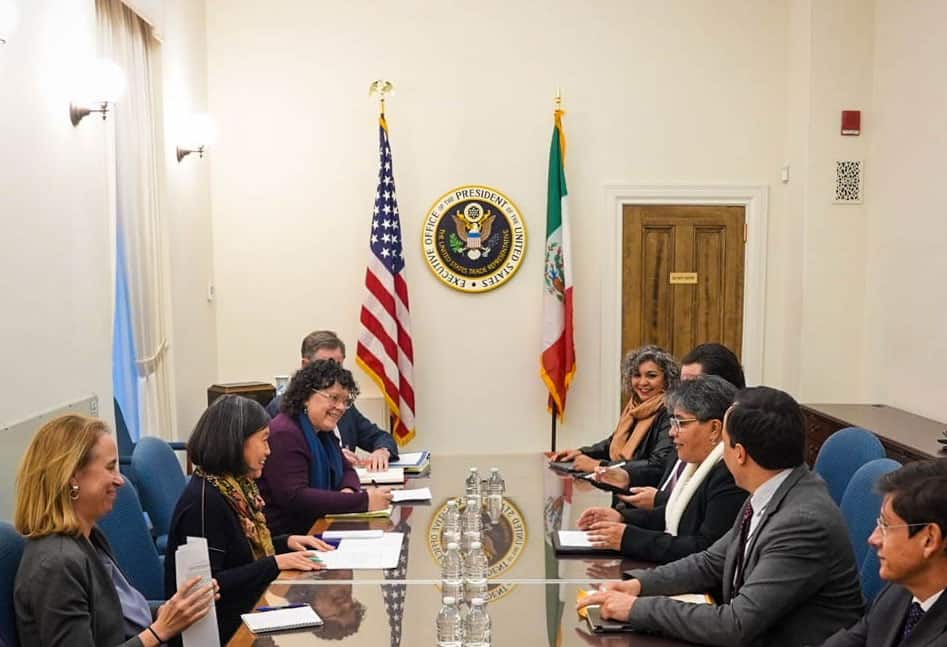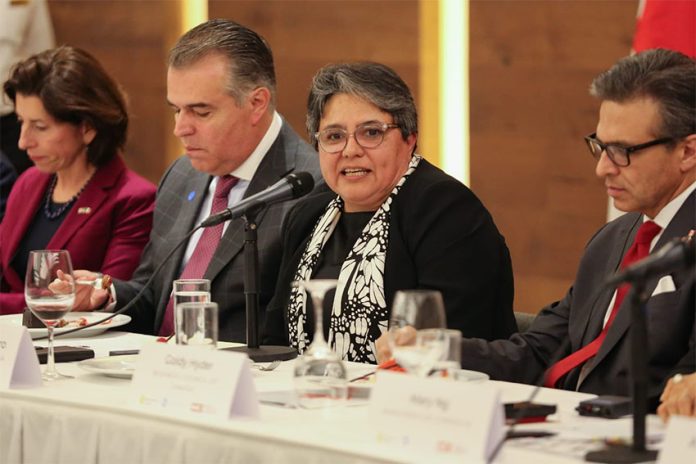As Mexico seeks to take advantage of the growing nearshoring phenomenon and resolve an energy sector conflict with its North American trade partners, the federal government has closed two overseas offices of the Economy Ministry (SE), according to a report by the El Financiero newspaper.
Citing four sources with knowledge of the issue, El Financiero reported Monday that the SE’s commercial representation office in Washington, D.C. closed on Dec. 31, 2022, while that in Geneva shut its doors on Jan. 31 of this year.

“They’re returning officials [to Mexico] at very short notice,” one of the sources said.
“What is not clear is whether they’re going to send people to cover these offices or whether in pursuit of austerity they will remain vacant,” added the source who noted that SE offices in Brussels and Tokyo have also closed.
Under President López Obrador’s leadership, the federal government has cut costs across a range of areas in pursuit of a healthy balance sheet and to free up resources for priorities such as the provision of welfare and social programs.
One of the El Financiero sources – all of whom spoke with the newspaper on the condition of anonymity – said that the closure of the SE office in Geneva is “the most serious” as Mexico consequently “loses representation before the World Trade Organization,” which is based in the Swiss city.
The sources agreed that the closure of the SE offices in the United States and Switzerland is additional proof that international issues, especially economic ones, are not a priority for the current federal government.
Proméxico, an agency that promoted international trade and investment, was also shut down during this term of government.

The closure of the SE offices in Washington and Geneva would appear to be counterproductive as Mexico is seeking to attract more investment from foreign companies, including ones from the United States and Europe, and resolve a dispute with the U.S. and Canada over energy policies that favor state-owned Mexican companies over private firms from those countries.
El Financiero’s report comes after Economy Minister Raquel Buenrostro said in late January that all 31 states and Mexico City have the opportunity to benefit from the growing trend of companies relocating to Mexico.
Jorge Molina, an international trade consultant, said that the closures will weaken Mexico’s capacity to engage on trade and commercial issues, including in the United States, where effective communication with the U.S. Congress and government bureaucracy is needed.
“The issue is not trivial,” he said, adding that Mexico didn’t participate in a meeting between United States Trade Representative Katherine Tai and trade ministers at the World Economic Forum in Davos, Switzerland, earlier this year.
However, Buenrostro – a former chief of the tax agency SAT who became economy minister last October – met with Tai in December to discuss ways in which the energy dispute could be resolved. She held talks more recently with the United Kingdom Secretary of State for Business and Trade Kemi Badenoch and representatives of the rail company Kansas City Southern México to discuss investment in Mexico.
Buenrostro said last November that hundreds of companies are interested in relocating to Mexico due to the country’s geographical proximity to the United States and benefits associated with the North American free trade agreement known as USMCA.
Still, a director with the media and consultancy firm Tendencias Económicas y Financieras, asserted that the decision to close SE offices in the U.S. and Switzerland shows that the federal government “doesn’t understand nearshoring.”
“It’s time to promote Mexico in Europe as the best place to manufacture products whose market is the U.S.A.,” Carlos López Jones wrote on Twitter.
Raúl Fraga Juárez, an academic and journalist, said that the decision to close the SE offices was “very high risk for Mexico in the midst of a global era.”
With reports from El Financiero
